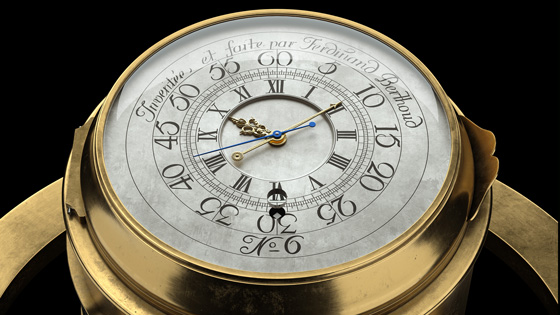
Five years on from the launch of The Chronomètre FB 1, To celebrate the 250th anniversary of Ferdinand Berthoud receiving the title of “Watchmaker” by appointment to the French King and the Navy’, the Manufacture is presenting a new collection.
The quest for accuracy that so inspired the man dubbed “the Explorers’ Watchmaker” is still very much at the heart of Chronométrie Ferdinand Berthoud, the Manufacture that pays tribute to him. In this anniversary year, the firm is unveiling a new timepiece: the Chronomètre FB 2RE. Featuring a new movement, a new case, and a new design, this original creation marks a fresh milestone in the recent history of the firm, following on from the presentation its first timepiece, in 2015.
In 1770, Paris was at the forefront of the Enlightenment – the theatre for the greatest intellectual, cultural, technical, and scientific revolutions humankind has ever seen. The period saw the emergence of literary salons, academies, and public libraries; it was a time when knowledge spread and intellectual debate flourished. Scientists and watchmakers played their part, too, establishing fundamental principles that still hold true today.
Ferdinand Berthoud, a Swiss watch and clockmaker, was born in 1727 in Val-de-Travers in the Canton of Neuchâtel. In 1745 he emigrated to Paris and began to practice his craft there, working at the intersection of many different fields of knowledge. He was a scientist, master horologist, and movement maker, authored many works of his own as well as articles in the Encyclopédie, and worked tirelessly on the development of marine chronometers. The stakes were truly global: ocean-going voyages stayed on course by calculating the difference between local solar time and that of a given meridian. The east-west position of ships, their route, and their point of arrival all depended on these “on board” and “departure” times being accurate.
Ferdinand Berthoud dedicated his life to seeking the ultimate precision on which entire expeditions depended. On May 7th 1766, he sent a paper to France’s Navy Minister, Choiseul, Duke of Praslins, in which he set out his plans for marine clocks. On July 24th 1766, King Louis XV agreed to finance the undertaking.
On the strength of this success, on April 1st 1770, Ferdinand Berthoud received the title of “Watchmaker-Mechanic” by appointment to the French King and the Navy, together with an annual allowance of 3,000 livres – and assumed responsibility for overseeing the construction of sea clocks. He received a Royal Commission for 20 such instruments: these were taken on board ships to accompany a large number of exploration and mapmaking expeditions during the closing decades of the eighteenth century.
The marine clocks played their part in new geographical and cultural horizons opening up for the world as never before. And 250 years on, in 2020, Chronométrie Ferdinand Berthoud is celebrating that achievement.
September 03, 2020


 News
News